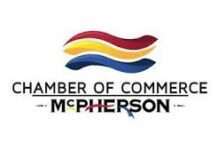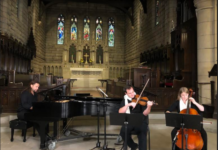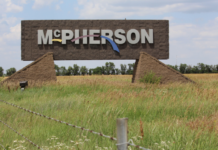By Ron Wilson, director of the Huck Boyd National Institute for Rural Development at Kansas State University.
Is there an electronic piano keyboard gathering dust at your house? I‘m afraid there is at mine. We don’t seem to find much time to use it. Today, we’ll learn about a high school music teacher who is helping students with their keyboard skills. In doing so, he’s building on the tradition of one of the world’s most famous musical instructors. She came from this very same hometown.
Last week we learned about Dorothy DeLay, one of the world
s most famous violin teachers. Miss DeLay graduated from Neodesha High School in 1933.
Ray Essington is the music teacher at Neodesha today. He grew up at Council Grove. Ray got a bachelor’s degree in music at KU, taught in Arkansas and then earned his master’s in music education at Kansas State.
Ray’s first Kansas school music teaching job was at Thayer, a rural community of 497 people. Now, that’s rural.
He then moved to Neodesha to become vocal music director for the middle school and high school. Here he met and married his wife, Ghendi.
Through the years, one trend he noticed was the reduced number of private piano teachers. Such teachers used to be quite common everywhere. When Neodesha High School changed from a block schedule to an eight-hour day, Ray got permission to start a piano class.
“I was convinced that parents had bought their kids keyboards which were sitting at home gathering dust,” Ray said. “(Musical keyboarding) is becoming a lost art,” he said. “With the support of the school district and the counselors, we were able to start a piano class.”
The class was held in the high school choir room. “We pull out four big tables with Yamaha keyboards and this becomes the piano lab,” Ray said. “We have the smaller 61-keyboards as well as the full size 88 key boards,” he said. This helps students learn the piano and perhaps to use keyboards which they might have at home.
Meanwhile, Ray had been somewhat aware of the name of Dorothy DeLay. Just before Ray came, Neodesha High School had honored Miss DeLay with one of its alumni awards. Then Ray remembered that his high school principal at Council Grove was named Dennis DeLay. Was it possible that there was a connection?
Sure enough, there was. Dorothy DeLay was the principal’s cousin. Ray’s principal had grown up at Yates Center, where the name of the principal’s father – Calvin DeLay – is on the old school stadium.
The more Ray learned about Dorothy DeLay, the more interested he became. The fact that she was one of the world’s most noted violin teachers and had graduated from Neodesha High School made it especially interesting.
“I got in touch with Dorothy DeLay’s daughter Alison,” Ray said. “We went to Boston for three days and she let me go through her keepsakes. It was awesome to see things like the picture of President Clinton presenting her with the National Medal of the Arts.”
It further inspired Ray to do more to honor Dorothy DeLay back home in Neodesha. He founded the Dorothy DeLay String Academy to teach violin to his students. It started as a volunteer program after school two years ago and is now part of the federally-funded after-school program. Twenty-one elementary school students, including Ray’s daughter, are part of the Dorothy DeLay String Academy today.
“The house Dorothy DeLay grew up in still stands here in Neodesha,” Ray said. “I would love to see it become a museum.”
Ray Essington is retiring from teaching in May 2018. “I plan to build a shadow-box display of Miss DeLay’s artifacts which will go in the foyer of the school auditorium,” he said. Through his creative use of keyboards and his string academy, he is building the musical capacity of his students.
Do you have an electronic keyboard at your house gathering dust? I do. We salute Ray Essington for making a difference with his creative teaching of piano keyboards and his efforts to build on the history of Dorothy DeLay. I think such creative teaching methods are key.
Audio and text files of Kansas Profiles are available at http://www.kansasprofile.com. For more information about the Huck Boyd Institute, interested persons can visit http://www.huckboydinstitute.org.




